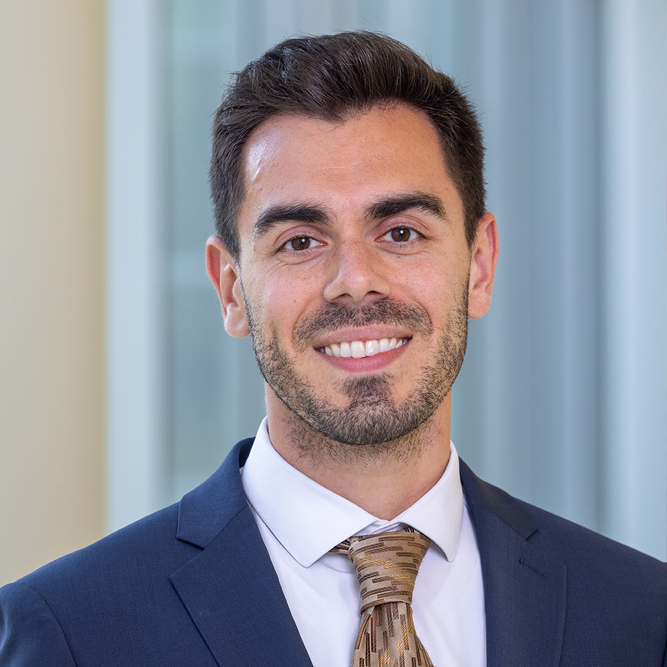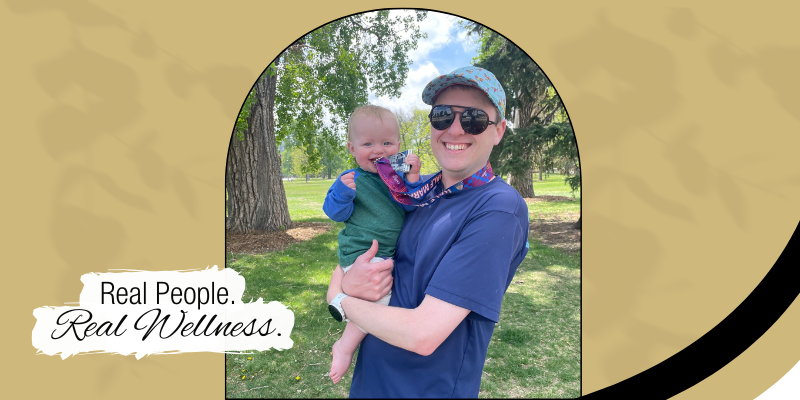Dr. John Michael Taormina is a distinguished obesity medicine provider practicing at the CU Medicine Weight Management and Wellness Clinic located at the CU Anschutz Health and Wellness Center, where he contributes to the advancement of knowledge and care in the areas of obesity and wellness. His commitment to advancing healthcare is evident through his numerous accolades, including being recognized as an Outstanding M.D. Instructor/Fellow at the Colorado Nutrition Obesity Research Center in 2023.
Dr. Taormina’s research interests are focused on pioneering approaches to weight management in diverse populations, with a primary emphasis on developing tailored and patient-centered strategies for weight management in transgender and gender diverse individuals. His work has been published in numerous medical journals.
Dr. Taormina is also actively involved in research related to reducing morbidity and risk of recurrence in patients with cancer through weight management interventions accompanying cancer diagnosis and treatment.
We recently interviewed Dr. Taormina about his expertise in weight management and his work in weight management interventions with transgender and gender diverse populations and cancer patients.
Wellness Connections: What inspired your focus on developing tailored and patient-centered approaches to weight management, particularly in transgender and gender diverse populations?
Dr. John Michael Taormina: As a primary care resident, I was frustrated giving patients the same, ineffective recommendation to eat less and move more to lose weight, which is what prompted me to pursue a fellowship in obesity medicine. I wanted to have the knowledge and skills to provide effective, evidence-based, and personalized weight management. I chose to uproot my life in Pittsburgh, PA, to complete my fellowship at the University of Colorado in large part due to the many experts in various aspects of obesity medicine here, and the opportunity to work with the transgender and gender diverse population. I spent a longitudinal experience in my final year of residency working in an LGBT health clinic in Pittsburgh that gave me a lot of exposure to gender-affirming care, which I found to be very gratifying. At the University of Colorado, my mentor, Dr. Sean Iwamoto, has helped me combine my interests in gender-affirming care and weight management by supporting transgender and gender diverse patients to meet BMI requirements and gain access to needed gender-affirming surgeries. I feel humbled and grateful to have the opportunity to provide this care for our patients in Colorado every week and to be able to contribute to the literature in this area.
Wellness Connections: Can you share insights into your award-winning work as an Outstanding M.D. Instructor/Fellow at the Colorado Nutrition Obesity Research Center?
Dr. John Michael Taormina: Everything that I have accomplished so far at the University of Colorado I have to credit to the supportive obesity medicine faculty here at the CU Anschutz Health and Wellness Center and across the entire medical campus, including the endocrinology department, the Children’s Hospital, and the VA. One of the biggest factors in choosing to come here was the sense I got while interviewing that the people here care about your career development and your being able to explore your interests. This was absolutely true during my fellowship and has continued into my early career as faculty.
Wellness Connections: How do you envision the impact of your research on preventing cancer recurrence through weight management interventions accompanying cancer diagnosis and treatment?
Dr. John Michael Taormina: My interest in weight management for patients with cancer came after an editorial I was asked to write with Dr Ross Camidge, head of the UCHealth thoracic oncology program last year on the weight effects of a newer class of lung cancer treatments called ALK-inhibitors. These treatments are extending patient’s lives while causing substantial weight gain for many patients. Our office is now seeing several of these patients for weight management, and I am now working with the thoracic oncology clinic on a project to evaluate how the use of newer anti-obesity medications started early in their treatment may be used to prevent weight gain associated with these medications. Our clinic has also seen an uptrend in referrals from the breast cancer clinic for patients in remission on aromatase inhibitors, also known to cause weight gain, to lose weight to prevent cancer recurrence. Many times, we, as providers, get asked how much weight loss is needed to prevent cancer from recurring; however, there is currently no data available to sufficiently answer this question. I hope that through developing relationships with the cancer center, we may be able to study the association and magnitude of weight loss, and rates of cancer recurrence, to better inform our weight management recommendations to patients. Ultimately, my goal is to reduce the morbidity associated with common cancer treatments.
Wellness Connections: What motivated your interest in increasing access to gender-affirming surgeries, and how do you provide weight management support for pre-surgical optimization?
Dr. John Michael Taormina: Even before my fellowship, I took care of transgender and gender diverse patients who would come to me frustrated that they were deemed ineligible for gender-affirming surgery because of their weight. Gender-affirming surgeries are lifesaving in many cases and are necessary, not simply elective, procedures. I was moved to enter this space after recognizing a gap in care for transgender and gender diverse patients: these patients are encouraged to lose weight without being given the appropriate support. This prompted my interest in pursuing academic work in this area but also in providing direct patient care. It was important to me to remove barriers for transgender and gender diverse patients to access weight management care, and to provide care in the most comprehensive and gender-affirming manner possible. Hence, with the support of the leadership at the CU Anschutz Health and Wellness Center, I created my weight management clinic within the already established UCHealth Integrated Transgender Program to provide care within a familiar space that patients feel comfortable with and to better collaborate with their primary care, hormone, and mental health providers. I provide much of the same comprehensive care that I do at the Weight Management and Wellness Clinic; however, being familiar with many of the unique barriers that many transgender and gender diverse patients face, I conduct appropriate screenings and have developed a repository of inclusive resources that I provide to patients.
Even before my fellowship, I took care of transgender and gender diverse patients who would come to me frustrated that they were deemed ineligible for gender-affirming surgery because of their weight. Gender-affirming surgeries are lifesaving in many cases and are necessary, not simply elective, procedures.
Wellness Connections: Could you elaborate on your involvement with professional organizations like The Obesity Society and the Obesity Medicine Fellowship Council, and how it contributes to your professional development?
Dr. John Michael Taormina: As a member of the Obesity Society, I attend the annual Obesity Week conference, which I find to be extremely helpful in keeping up-to-date on the latest developments in obesity medicine, and to network with international leaders in the field. I was recently asked to share my thoughts about some of the newest developments with JAMA Network. I recently finished my term as an elected fellow member of the Obesity Medicine Fellowship Council, the entity that guides fellowship training in obesity medicine. This role allowed me to establish connections with fellowship program directors around the country. Moreso, it has allowed me to contribute to the academic development of current fellows through my co-creation and moderation of a monthly journal club amongst all Obesity Medicine fellows.
Wellness Connections: Can you share some insights from your publications, especially the ones addressing obesity in transgender and gender diverse patients and the use of anti-obesity medication for gender-affirming surgery?
Dr. John Michael Taormina: In 2023, I published two separate articles on this topic. The first was a perspective piece to bring attention to the gap in care currently present for transgender and gender diverse patients in accessing gender-affirming surgery due to BMI cutoffs and lack of support in reaching these requirements. Transgender and gender diverse people are disproportionately affected by obesity due to hormone-induced weight changes, socioeconomics, gender minority stress, and comorbid health conditions. Furthermore, providing recommendations to transgender and gender diverse patients to lose weight is nuanced because transgender and gender diverse people have high rates of disordered eating, body shape preferences that may not align with weight loss, and unique barriers to engaging in healthful behaviors (e.g., housing or food insecurity, gender dysphoria and/or lack of safe spaces limiting physical activity). All these factors must be considered when asking patients to lose weight and when offering management strategies. Transgender and gender diverse people are often excluded from anti-obesity clinical trials due to the use of gender-affirming hormones and/or mental health concerns. However, these treatments may be essential for many transgender and gender diverse patients to reach universal BMI requirements and thus, the safety and efficacy of these treatments in this population is warranted. I published a case report of a transgender woman with class II obesity on feminizing hormone therapy who safely reached her BMI target in 3 months with the use of an anti-obesity medication. These publications set the stage for the plenary presentation I gave with excellent colleagues from around the country in mental health, gender-affirming endocrinology, gynecology and plastic surgery, as well as an incredible gender-nonconforming community member, on the BMI Requirements for Gender-Affirming Surgeries at the U.S. Professional Association for Transgender Health (USPATH) national conference this past November. This presentation reached over 600 gender-affirming providers nationally. The same group of people has come together to write an article expanding on our presentation for the Journal of Endocrinology and Metabolism – keep an eye out for an Approach to the Patient article published later this year!
Wellness Connections: How do you see the future of obesity medicine evolving, and what advancements do you anticipate in tailoring weight management strategies for diverse populations?
Dr. John Michael Taormina: I see that people are better at understanding obesity as a chronic condition rather than simply a behavioral problem. With newer and more effective treatment options available, I think the field will continue to expand. Fellowships are continuing to develop around the country, and soon there will be enough to justify obesity medicine being recognized by the American Board of Medical Specialties as its own, distinct specialty, which will justify compensation for providers (thus encouraging more providers to enter the field) and hopefully improve insurance coverage for treatments. The delivery of this treatment (online vs. in-person, primary care vs. specialty care, etc.) is an area that I think will continue to develop while other barriers to treatment are addressed, including cost, insurance coverage, and medication supply. I anticipate that anti-obesity medication trials will include more diverse cohorts given the outcry from the academic community for pharmaceutical companies to recruit more representative samples. This will allow us to stratify data by demographics to better determine how treatments differentially affect different groups of people. I anticipate more real-world studies will also be conducted, which will help identify potential barriers or preferences that patients of different backgrounds have while undergoing treatment. As we recognize how engaging with different minority groups differs between groups, interventions to engage with those groups, like the transgender and gender diverse population, will continue to develop. I hope that this will involve listening to the experiences and preferences of these groups, asking them to engage in the creation of these interventions, and developing programs that adequately address their needs.
Wellness Connections: What advice do you have for healthcare professionals aspiring to make a significant impact in the field of obesity medicine and wellness?
Dr. John Michael Taormina: My advice is to follow your passion. I have been interested in obesity and wellness since I was in middle school when my grandfather was diagnosed with prediabetes and ultimately diabetes. While this influenced my trajectory to pursue medicine, I had no idea how I would incorporate obesity and wellness into my career until I came across obesity medicine as a viable career path during my residency. Since then, I have never looked back and have found every step since entering this field to be gratifying. The field is so young and touches on so many other aspects of medicine that no matter what your interests are within obesity medicine, it is likely that you can make an impact in that area. Find a mentor who shares your interest, and ask for opportunities to contribute, whether clinical, research, or teaching. Attend a conference (TOS, OMA) and pursue continuing medical education in the field with the goal of taking the American Board of Obesity Medicine (ABOM) exam. If you feel like you need more formal support, consider an obesity medicine fellowship. You can find more information about fellowships around the country on the Obesity Medicine Fellowship Council website.
Wellness Connections: How do you balance your roles as a clinician, researcher, and educator, and what motivates you to continue contributing to the field?
Dr. John Michael Taormina: My primary role is as a clinician, so I dedicate the bulk of my time to patient care. I feel blessed to be able to spend a half-day every week teaching and working with our obesity medicine fellow. I use all my available administrative time to explore my research and academic interests. Being involved in so many different things spills over a typical 40-hour work week. However, I am motivated to continue to contribute to the field because I want to be a thought leader in this field and contribute to the evolution and expansion of obesity medicine care and medical training. I think that this is a very exciting time for obesity medicine, and I want to be at the forefront.
More about Dr. John Michael Taormina:
Dr. John Taormina is a distinguished obesity medicine provider practicing at the CU Medicine Weight Management and Wellness Clinic located at the CU Anschutz Health and Wellness Center, where he contributes to the advancement of knowledge and care in the areas of obesity and wellness.
Dr. Taormina joined the CU Medicine Weight Management Clinic as a provider after participating in the Colorado Obesity Medicine Fellowship, an extensive obesity medicine training program at the CU Anschutz Health and Wellness Center where Fellows train in all aspects of weight management including lifestyle-based therapy, pharmacotherapy, endoscopic treatments as well as pre-and post-operative assessment and management of both adult and pediatric patients undergoing bariatric surgery.
In his current role as a provider at the CU Medicine Weight Management and Wellness Clinic, Dr. Taormina provides comprehensive weight management care, emphasizing the medical treatment of obesity. He is particularly passionate about increasing access to gender-affirming surgeries for transgender and gender diverse adults. Dr. Taormina also offers weight management support for presurgical optimization when necessary. His commitment to the field is further reflected in his membership in various professional organizations, including The Obesity Society, Obesity Medicine Association, Obesity Medicine Fellowship Council, Colorado Obesity Society, and The Endocrine Society. His commitment to advancing healthcare is evident through his numerous accolades, including being recognized as an Outstanding M.D. Instructor/Fellow at the Colorado Nutrition Obesity Research Center in 2023.
Dr. Taormina’s research interests are focused on pioneering approaches to weight management in diverse populations, with a primary emphasis on developing tailored and patient-centered strategies for weight management in transgender and gender diverse individuals. This commitment reflects his dedication to reducing health disparities and increasing access to gender-affirming surgeries. Dr. Taormina is also actively involved in research related to reducing morbidity and risk of recurrence in patients with cancer through weight management interventions accompanying cancer diagnosis and treatment. His work has been published in numerous medical journals.
Visit his published works below:
Filling a gap in care: addressing obesity in transgender and gender diverse patients
Meeting the Body Mass Index Requirement for Gender-affirming Surgery Using Antiobesity Medication
Letter to the Editor of Obesity Pillars from the Obesity Medicine Fellowship Council
Editorial Related to Leeuw et al.: The Evolution of Expectations: How Our Views On "Acceptable" Toxicities Are Changing With Prolonged Lung Cancer Treatments


.png)

